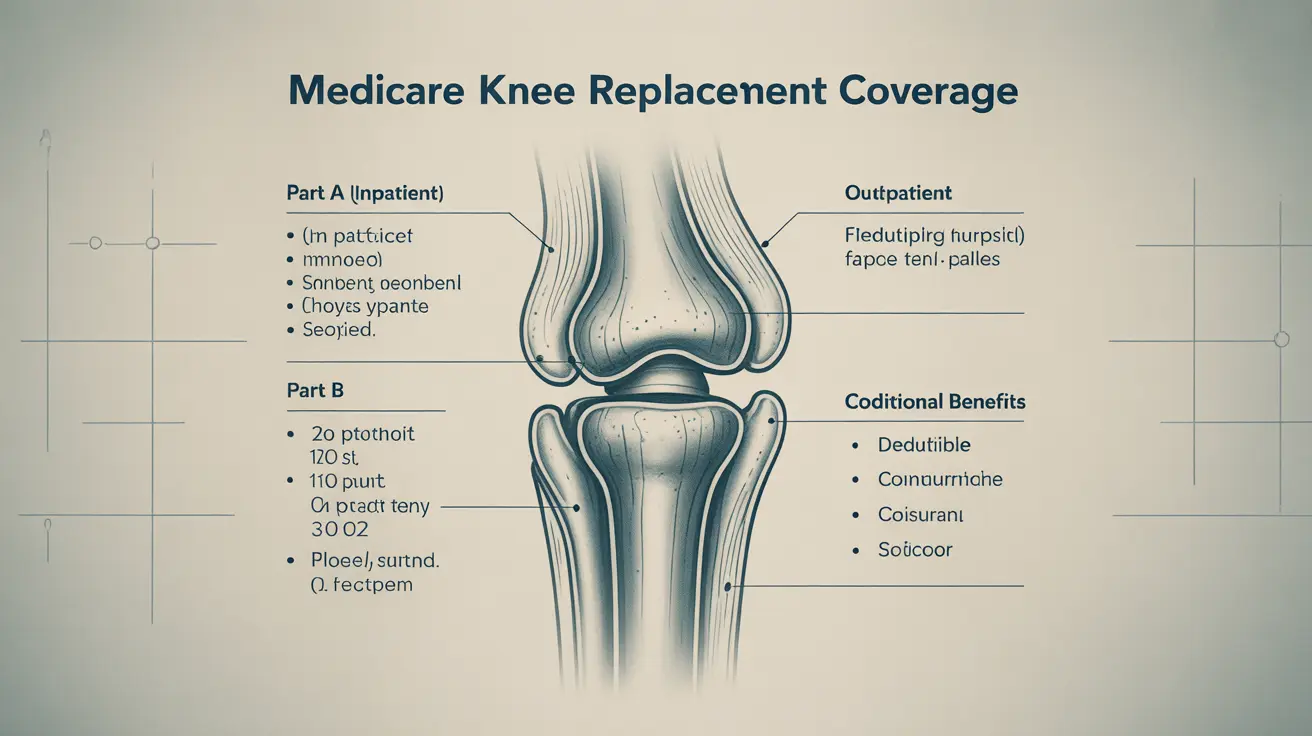Understanding Medicare coverage for knee replacement surgery is crucial for seniors considering this important medical procedure. Whether you're planning for surgery or helping a loved one navigate their healthcare options, knowing what Medicare covers can help you prepare financially and make informed decisions about your care.
This comprehensive guide will walk you through everything you need to know about Medicare coverage for knee replacement surgery, including costs, different Medicare parts, and post-surgery care coverage.
Understanding Medicare Coverage for Knee Replacement
Medicare typically covers knee replacement surgery when it's deemed medically necessary by your healthcare provider. To qualify for coverage, you must have documented evidence of severe knee pain, limited mobility, and failed conservative treatments. Your doctor must also be a Medicare-participating provider.
Medicare Parts and Their Coverage
Medicare Part A Coverage
Medicare Part A covers inpatient hospital stays related to knee replacement surgery. This includes:
- Semi-private room
- Meals during hospitalization
- Nursing care
- Required medications during your stay
- Operating room and recovery room services
Medicare Part B Coverage
Medicare Part B handles outpatient medical services related to your knee replacement, including:
- Pre-surgical doctor visits
- Surgery costs if performed as an outpatient procedure
- Medical equipment like walkers or crutches
- Physical therapy sessions
- Follow-up care
Medicare Part C (Medicare Advantage)
Medicare Advantage plans must provide at least the same coverage as Original Medicare (Parts A and B), but may offer additional benefits. These plans often include prescription drug coverage and might have different cost-sharing structures.
Understanding Out-of-Pocket Costs
Even with Medicare coverage, you'll likely have some out-of-pocket expenses for your knee replacement surgery:
- Medicare Part A deductible
- Medicare Part B deductible and coinsurance
- Copayments for doctor visits
- Coinsurance for medical equipment
- Prescription medication costs
Post-Surgery Care and Coverage
Medicare's coverage extends beyond the surgery itself to include necessary rehabilitation and recovery services. This typically includes:
- Physical therapy sessions
- Occupational therapy if needed
- Durable medical equipment
- Follow-up appointments with your surgeon
- Home health care if medically necessary
Outpatient vs. Inpatient Surgery Coverage
Medicare covers both inpatient and outpatient knee replacement procedures. Your doctor will determine the appropriate setting based on your medical needs, overall health, and other factors. Coverage and costs may vary depending on whether your surgery is performed as an inpatient or outpatient procedure.
Frequently Asked Questions
- Does Medicare cover knee replacement surgery, and what determines if it's covered?
Yes, Medicare covers knee replacement surgery when it's deemed medically necessary. Coverage is determined by factors including documented knee pain, limited mobility, failed conservative treatments, and recommendation from a Medicare-participating physician.
- What costs will I have to pay out of pocket for knee replacement surgery under Medicare?
Out-of-pocket costs typically include deductibles, coinsurance, and copayments. For 2024, you'll need to pay the Part A deductible for inpatient stays and the Part B deductible plus 20% coinsurance for doctor services and outpatient care.
- How do Medicare Part A, Part B, and Part C differ in covering knee replacement procedures?
Part A covers inpatient hospital stays, Part B covers outpatient services and medical equipment, and Part C (Medicare Advantage) provides at least the same coverage as Original Medicare but may offer additional benefits with different cost-sharing structures.
- Are physical therapy and medical equipment after knee replacement surgery covered by Medicare?
Yes, Medicare covers both physical therapy and necessary medical equipment following knee replacement surgery. Part B typically covers 80% of these costs after you meet your deductible.
- Can Medicare cover outpatient knee replacement surgery, or is it only for inpatient hospital stays?
Medicare covers both outpatient and inpatient knee replacement surgeries. The setting is determined by your doctor based on medical necessity, overall health, and other clinical factors.




